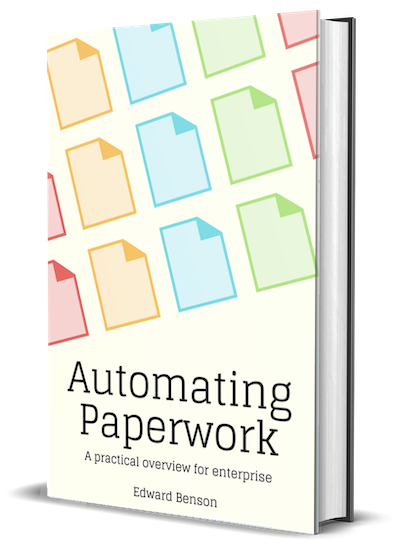The value proposition of NLU
Many of people still think of AI and automation through the metaphor of robotic auto assembly lines. Tireless robots replacing human jobs by mimicking human movements. This form of automation may be an optimization on yesterday's industry, but it's not the path toward tomorrow's.
Smart AI strategy augments humans, not replaces them. Tony Stark's suit didn't replace him, it worked with him. And together they became Iron Man.
What follows is a mental exercise to help you expand your thinking of Natural Language Understanding beyond the "replace humans" mindset. For each of these categories, read the picture painted and ask yourself how it might be translated into your own business. If it was, how would it change the value you were able to offer?
More Time
- Smarter search, copy, paste
Document search will soon understand the nuances of the documents being looked at. Paralegals will be able to search for "payment terms" and the right paragraph will appear even if that phrase wasn't used explicitly. Databases will be able to import PDF documents and store them as the structured information contained within. Humans will be able to easily transfer information from one document format to another. - Better client interactions
Client-facing employees waste valuable time doing paperwork. Sometimes while the client watches them! Instead of spending their time copying information into a database, what if they could build a more personal relationship with your clients?
Better Business Intelligence
- Enterprise-wide search
What questions would you ask your filing cabinets if they could answer? Entire corporate strategies can hinge on assumptions about information asymmetries and availabilities. How do your assumptions change when you can search for more nuanced information across the documents in your archive? - New business metrics
The metrics we use to measure and improve business are limited to those that are cost-effective to collect. NLU will permit you to gather and study a wider set of analytics about the way you do business.
Reduced Risk
- Better audit coverage
How many customers a year do you audit? How many internal documents do you check for compliance? Many companies only audit a fraction of their data because it's cost prohibitive to check everything. Even if an automated audit process can't catch compliance errors with the accuracy of a human, you may catch more errors in the end simply by covering a larger set. - Error reduction
Computers make — and can detect — different kinds of errors than humans. A hybrid team of humans and computers working together can thus make far fewer errors than a team with humans or computers alone. Computers can prepare work for humans to review, and then perform every possible cross-check, every time, to detect miskeyed information. - Codifying complex processes
Codifying a process improves the ability to measure and refine it and makes it more survivable amidst organizational change. Automating a document pipeline often results in a great deal of cross-team process codification, transforming an organization's informal practices into something that can be more easily measured and improved.
Better Unit Economics
A business operation can be defined as the lifecycle of the documents that fuel it. For example, a loan is the process that transforms a set of identity, financial, and application documents into an approval letter. From this vantage point, NLU is a way to improve the unit economics of these document processes: simultaneously reducing cost, increasing volume, and increasing velocity. Here are ways to apply that beyond the obvious efficiencies:
- Bringing high-touch offerings down-market
By decreasing the cost required to handle sophisticated service products, NLU enables a company to offer them to a greater portion of their customers. - Improved deal closing
In commoditized markets, the fastest seller to approve a deal is often the one that wins it. NLU can speed deal approval by automating much of the paperwork. - Improving wellbeing and safety
Whether it's a medical emergency, post-op billing, quality legal representation, or housing assistance, more efficient handling of data can result in better outcomes in the lives of us all. - Business expansion
Better unit economics can be used to fuel business growth without the need for additional capital.
New Strategies
- Smarter triage
Many business decisions involve managing scarce resources. Of the hundred contracts under review, which three should your legal team address today? Of the ten new laws passed in Congress, which need attention from your tax department? NLU can help humans choose which documents to focus on first in order to maximize profits, minimize fines, and meet deadlines. - New and better products
Computer programmers use the phrase "moving up-stack" to refer to the packaging of a solution as a building block for solving yet larger problems. With computers assisting in document understanding, your product and operations teams can "move up-stack" and begin designing and building better products that provide more value to customers. - Turning domain knowledge into platforms
Every industry looks at Amazon and marvels at AWS: it virtualized and white-labeled the entire cloud hosting ecosystem, creating an economic juggernaut in doing so. But every domain has its own ecosystem, and documents are the unit of transaction that define that ecosystem's inputs and outputs. The next decade will see a race, powered by NLU, to create the "AWS for X," for most industries dominated by paperwork.
